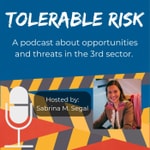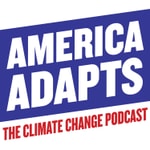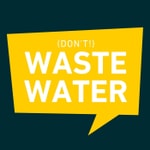DevelopmentAid Dialogues – Details, episodes & analysis
Podcast details
Technical and general information from the podcast's RSS feed.

DevelopmentAid Dialogues
Hisham Allam
Frequency: 1 episode/17d. Total Eps: 29

Each episode features insightful conversations with experts and practitioners, offering valuable perspectives on the challenges and opportunities shaping our world. DevelopmentAid is a platform where we share knowledge and fostering collaboration within the development community. We believe that by sparking meaningful conversations, we can contribute to finding innovative solutions for a more just and sustainable future.
Recent rankings
Latest chart positions across Apple Podcasts and Spotify rankings.
Apple Podcasts
🇩🇪 Germany - nonProfit
28/07/2025#58🇩🇪 Germany - nonProfit
27/07/2025#41🇩🇪 Germany - nonProfit
26/07/2025#36🇩🇪 Germany - nonProfit
25/07/2025#34🇩🇪 Germany - nonProfit
24/07/2025#20🇩🇪 Germany - nonProfit
23/07/2025#18🇩🇪 Germany - nonProfit
22/07/2025#12🇨🇦 Canada - nonProfit
18/07/2025#86🇨🇦 Canada - nonProfit
17/07/2025#70🇩🇪 Germany - nonProfit
17/07/2025#90
Spotify
No recent rankings available
Shared links between episodes and podcasts
Links found in episode descriptions and other podcasts that share them.
See allRSS feed quality and score
Technical evaluation of the podcast's RSS feed quality and structure.
See allScore global : 53%
Publication history
Monthly episode publishing history over the past years.
Water, Land, and Power: The Interconnectedness of Sustainable Development | with Sean Furey from SKAT foundation
jeudi 22 août 2024 • Duration 26:41
Our guest: Sean Furey, the Secretariat Director of the Rural Water Supply Network (RWSN).
During the episode, Mr. Furey shared insights with podcast host Hisham Allam into the vast network of community organizations managing water systems and the challenges they face. Highlighting a recent example from Ecuador, he illustrated the extensive scale of these operations, supported by thousands of community boards and municipalities.
A key focus of RWSN’s work is leveraging technology to connect people and disseminate crucial information.
Mr. Furey emphasized the potential of online tools, such as WhatsApp and AI, to provide valuable services and facilitate connections among water professionals.
He underscored the importance of local and national level collaboration in addressing complex issues like climate change and water resource management.
One notable shift in the sector is the adoption of solar-powered groundwater pumping technologies. Mr. Furey discussed how solar pumps outperform typical hand pumps or diesel-powered systems, especially in rural and small-town settings. However, he also emphasized the risks of over-extraction of groundwater resources, particularly in agricultural sectors.
According to a study carried out among RWSN members, hand pumps will continue to be essential in distant, low-income communities even though solar pumping is thought to be the way of the future.
Given the challenging conditions and logistical challenges associated with providing service to remote places, manufacturers face a challenge in striking a balance between price, quality, and reliability.
In Sub-Saharan Africa, groundwater management remains a critical issue.
Mr. Furey drew attention to the need for a deeper understanding of groundwater resources, which are anticipated to become even more crucial due to climate change.
He discussed research program findings that demonstrate increased groundwater recharge in dryland Africa, providing a positive outlook for future water management.
Additionally, the private sector’s contribution to rural water provision was discussed. While acknowledging the challenge of attracting private capital due to the low financial returns, Mr. Furey highlighted the potential of public-private partnerships (PPPs) to improve sustainability and service delivery, as demonstrated by a titanium mine project in Kenya.
Another important topic is RWSN’s approach to professional development and capacity building.
Mr. Furey elaborated on their initiatives to elevate rural water supply as a career, supporting individuals through online education and mentoring programs, and advocating for greater representation of women in leadership positions in the industry.
He emphasized the value of collective ownership and the necessity of addressing concerns related to land and water rights governance.
Finally, Mr. Furey cited a quotation from the Greek philosopher Heraclitus to discuss the importance of adapting to change. He highlighted the value of flexibility and learning in the face of rapid changes and promoted teamwork in the water industry to solve problems and innovate.
The podcast is sponsored by DevelopmentAid. Procurement notices, funding and grants to opportunities, lists of potential partners, insights into market trends, databases of development professionals, webinars, latest news, and much more. Stay informed and connected.
Subscribe and Stay Connected
Early Warnings & Noodle Networks: Innovative Strategies for Disaster Response | with Manu Gupta Disaster Resilience Expert
lundi 5 août 2024 • Duration 32:19
In the realm of humanitarianism and disaster response, Dr. Manu Gupta shines as a guiding light of unwavering dedication and passionate advocacy. With over three decades of experience, his journey from volunteer work to founding SEEDS (Sustainable Environment and Ecological Development Society) reflects a profound commitment to empowering communities and building resilience in the face of adversity.
A recent interview with Development Aid Dialogues sheds light on Dr. Gupta's remarkable journey and the invaluable lessons he has gleaned along the way. From his early experiences as a relief worker to his pivotal role in shaping disaster risk reduction efforts, Dr. Gupta's insights offer a roadmap for effective humanitarian action in a rapidly changing world.
Reflecting on his formative years, Dr. Gupta recalls a transformative moment during the 2001 Gujarat earthquake. Witnessing the devastating impact of the earthquake firsthand, he was struck by the realization that many lives could have been saved with stronger, more resilient infrastructure. This experience sparked a lifelong commitment to disaster risk reduction and post-disaster recovery efforts aimed at building safer, more resilient communities.
"A post-disaster response is usually the actions taken by humanitarians such as us to respond to the needs of people who have been hit by crisis," Dr. Gupta emphasizes.
One of the key lessons Dr. Gupta has learned is the importance of restoring agency to affected communities in the aftermath of a disaster. He emphasizes the need for communities to be actively involved in their own recovery, stating, "When the most affected people are at the center of post-disaster recovery, the intervention not only stays with them but then they also innovate, they also evolve."
"We felt that at this time, when we do the rebuilding work in the same communities, the houses need to be strong enough... People should know the potential impact of an earthquake," Dr. Gupta explains.
Community-based disaster management lies at the core of SEEDS' approach, with a focus on empowering local leaders and engaging communities in resilience-building efforts. Dr. Gupta highlights the crucial role of local knowledge and leadership in mitigating the impact of disasters and facilitating recovery efforts, stating, "The most affected family and their own friends and neighbors really can reach out before anyone else can in an emergency."
"Awareness is the ownership and the agency of affected people themselves that has sustained throughout no matter what kind of disaster has hit people," he adds.
"Investing in communities, when enabled properly, with the right kind of knowledge, with the right kind of support, can help scale the kind of impact we want to create," Dr. Gupta believes.
In addition to his work on the ground, Dr. Gupta has been instrumental in cofounding alliances and collaborative initiatives focused on adaptation and disaster risk reduction. Recognizing the importance of collective action, he underscores the need for partnerships and alliances to address the increasingly complex challenges posed by climate change and natural disasters.
"There is so much suffering as we see in the world today, and I just feel this is something that is needed by many more of us," he reflects.
Looking ahead, Dr. Gupta remains steadfast in his commitment to building a more resilient world. Despite the daunting challen
The podcast is sponsored by DevelopmentAid. Procurement notices, funding and grants to opportunities, lists of potential partners, insights into market trends, databases of development professionals, webinars, latest news, and much more. Stay informed and connected.
Subscribe and Stay Connected
Human Trafficking Unveiled: Insights from the Frontlines | A dialogue with Tatiana Kotlyarenko Expert on Human trafficking
Season 1 · Episode 8
mardi 16 juillet 2024 • Duration 35:11
Guest Description: Tatiana Kotlyarenko, Expert on GBV and Human Trafficking
Episode sneak peak: In the latest DevelopmentAid Dialogues podcast, Tatiana Kotlyarenko, a human rights defender, discusses the complexities of human trafficking with Hisham Allam. She emphasizes that trafficking involves organized crime and corruption, complicating efforts to combat it. Kotlyarenko shares her experience evacuating at-risk individuals from Afghanistan, highlighting the importance of international solidarity.
She dispels myths about trafficking, noting its evolution to include domestic and online exploitation, especially during the COVID-19 pandemic. Kotlyarenko stresses the need for parental vigilance and the role of educational institutions in prevention. She also highlights technology’s role, citing projects like Racknet and Thorne, which use tech to protect children from trafficking.
Kotlyarenko’s journey from Ivy League education to grassroots activism underscores the need for a holistic approach that combines academic knowledge with practical experience to develop effective human rights policies.
The podcast is sponsored by DevelopmentAid. Procurement notices, funding and grants to opportunities, lists of potential partners, insights into market trends, databases of development professionals, webinars, latest news, and much more. Stay informed and connected.
Subscribe and Stay Connected
Voices from Yemen: Delivering AID in a Conflict Zone | Dialogue with Ibrahim El Haddad from OCHA
Season 1 · Episode 7
lundi 1 juillet 2024 • Duration 31:37
Yemen grapples with a staggering humanitarian crisis, leaving millions dependent on aid for survival. Delivering that assistance, however, is fraught with challenges.
In this episode of DevelopmentAid Dialogues, Ibrahim Elhadhad, a UN Office for the Coordination of Humanitarian Affairs (OCHA) official, offers alongside Hisham Allam a firsthand look at the complexities of navigating aid delivery in Yemen and the unwavering commitment to helping those most in need.
OCHA plays a central role in coordinating the response. Elhadhad explains a standardized framework used to identify the most vulnerable populations – a crucial step when resources are limited. Tough decisions are inevitable, but Elhadhad emphasizes that even those who don't receive direct aid benefit from a more streamlined response.
The volatile security situation creates significant dangers for aid workers. Elhadhad acknowledges the ever-present threat of assassinations, detentions, and kidnappings. OCHA implements safety measures, analyzing the presence of armed actors, securing facilities, and obtaining movement permits. Elhadhad uses the example of curfews to illustrate the constant need to navigate the complexities on the ground.
Reaching the most vulnerable people - women, children, and the displaced - is a continuous priority. Elhadhad describes how OCHA achieves this by gathering data broken down by gender, age, and susceptibility. This data, along with a comprehensive monitoring system, enables transparent reporting and verification of aid delivery. Despite these efforts, the magnitude of the situation is enormous. Millions of people are denied access to crucial help due to funding shortfalls. Elhadhad underlines the urgent need for more donor support.
The podcast is sponsored by DevelopmentAid. Procurement notices, funding and grants to opportunities, lists of potential partners, insights into market trends, databases of development professionals, webinars, latest news, and much more. Stay informed and connected.
Subscribe and Stay Connected
From Rainwater Tanks to Dignity: The Ripple Effect of Water Access Projects | Dialogue with Kerstin Danert from Ask for Water
Season 1 · Episode 6
mardi 11 juin 2024 • Duration 23:06
Guest description: Dr. Kerstin Danert, the founder and director of Ask for Water. Ask for Water works collaboratively with governments, NGOs, and research institutions. They focus not just on the technical aspects of borehole drilling, but also on building capacity, ensuring quality control, and implementing sustainable practices.
Episode Description:
In this episode, we discuss water access in low- and middle-income countries with Dr. Danert. Hey journey began in Uganda, where she witnessed firsthand the struggles of communities relying on unsafe water sources. She emphasizes the importance of having qualified professionals engaged into projects as well as proper techniques in borehole drilling. Dr. Danert emphasizes that "a borehole is much more than a hole in the ground." Ask for Water champions responsible practices that ensure long-term functionality and prevent well failure.
The heart of the episode lies in the human stories. Dr. Danert shares a moving story about a Ugandan woman whose life was transformed by having access to clean water at home. This simple act brought dignity, freed her from arduous journeys to distant springs, and empowered her to participate more fully in her community. This story exemplifies the ripple effect of water access projects, impacting health, education, and gender equality.
The episode doesn't shy away from the challenges. Dr. Danert expresses concern about the current emphasis on drilling quantity over long-term project sustainability. She stresses the importance of responsible planning, cost analysis, and community involvement to ensure projects continue to provide clean water for years to come.
"From Rainwater Tanks to Dignity" is an inspiring exploration of Ask for Water's impactful work. It leaves us with a renewed appreciation for the life-changing power of clean water access and the dedication of organizations like Ask for Water who are committed to finding innovative and sustainable solutions.
The podcast is sponsored by DevelopmentAid. Procurement notices, funding and grants to opportunities, lists of potential partners, insights into market trends, databases of development professionals, webinars, latest news, and much more. Stay informed and connected.
Subscribe and Stay Connected
Turning Trash to Treasure: Organic Waste Management | Latin American Perspective with Sandra Mendez
Season 1 · Episode 5
lundi 27 mai 2024 • Duration 23:59
Guest description: Sandra Méndez F. is an experienced expert and project developer, and coordinator at Skat.
Episode description:
In this episode of DevelopmentAid Dialogues, we explore the current state of waste management in Latin America and the innovative solutions emerging across the region.
Dr. Fagrado paints a vivid picture of the waste management landscape, highlighting the predominance of landfilling without separation. She emphasizes that over 50% of waste comprises organics, presenting significant environmental concerns.
From large-scale composting facilities to community-driven programs, a shift towards sustainable waste management is underway in Latin America. Colombia's Green Terrace project exemplifies this movement, aiming to create a closed loop between organic waste and healthy food production through composting and urban agriculture.
The path towards sustainable waste management isn't without its bumps. Dr. Fagrado pinpoints limited technical knowledge and time constraints as key obstacles for residents. However, she remains optimistic, underlining the power of education and awareness campaigns to drive cultural change. "Environmental education activities and information campaigns are very important," Dr. Fagrado emphasizes, highlighting the need for comprehensive solutions.
Dr. Fagrado's insights paint a hopeful picture: waste management in Latin America is evolving from disposal to opportunity. Innovation, education, and collaboration are paving the way for a sustainable future. Projects like Green Terrace illuminate this shift, showcasing how waste can be transformed into a resource.
The podcast is sponsored by DevelopmentAid. Procurement notices, funding and grants to opportunities, lists of potential partners, insights into market trends, databases of development professionals, webinars, latest news, and much more. Stay informed and connected.
Subscribe and Stay Connected
Profit and Purpose: Aligning Business & Social Good in Development Partnerships | with Kim Eric Bettcher, CIPE
Season 1 · Episode 4
lundi 13 mai 2024 • Duration 31:05
Our Guest: Kim Eric Bettcher, a leading expert from CIPE's Policy and Program Learning department, specializing in democratic governance and international partnerships.
Episode Description:
In this episode, we discuss the role of partnerships and knowledge management in advancing global development goals. Our guest, Kim Bettcher believes that collaboration can bring about significant change and views partnerships as crucial catalysts for systemic transformation. He also emphasizes the importance of inclusive conversation and involvement in promoting sustainable development. He believes that "voice is essential" and advocates for empowering underprivileged populations to influence development goals. This underlines the necessity of including multiple voices and perspectives in decision-making processes.
Regarding technology in development, Bettcher stresses the importance of finding a balance that prioritizes human needs. He suggests, "Partnerships should leverage technology," emphasizing that technology should support rather than overshadow the core principles of collaboration. This highlights the need to use technology as a tool to improve communication, data sharing, and project effectiveness.
Additionally, Bettcher emphasizes the necessity of fostering a culture of learning and adaptability within partnerships. He points out, "It's all about mindset, not just resources," emphasizing the importance of embracing a mindset focused on continuous learning and innovation. This underscores the significance of being flexible and resilient in navigating the ever-changing landscape of development cooperation.
As the global community endeavors to achieve sustainable development goals, Kim Eric Bettcher's insights offer invaluable guidance for forging effective partnerships and driving meaningful change. By embracing collaborative innovation, centering inclusive participation, balancing technological advancements, and nurturing a culture of learning, we can collectively build a more resilient and equitable world.
The podcast is sponsored by DevelopmentAid. Procurement notices, funding and grants to opportunities, lists of potential partners, insights into market trends, databases of development professionals, webinars, latest news, and much more. Stay informed and connected.
Subscribe and Stay Connected
Mosquitoes, Money & a Warming World: Why a Malaria Vaccine Isn't Enough | Insights from Scott Filler
Season 1 · Episode 3
jeudi 18 avril 2024 • Duration 30:59
Guest Description: Scott Filler, Senior Disease Coordinator at the Global Fund, a worldwide movement to defeat HIV, TB and malaria.
Episode description:
In this episode, we discuss Dr. Filler's journey, from a personal encounter with the disease to spearheading innovative initiatives. This profound sense of purpose fuels Dr. Filler's tireless advocacy for equal access to healthcare, regardless of birthplace. He asserts, "No child should have to face the devastating consequences. They didn't choose where they were born."
Throughout the podcast, Dr. Filler navigates the complex landscape of malaria control and elimination with clarity and insight. He discusses innovative initiatives like the Regional Artemisinin-resistance Initiative (RAI) and addresses the disruptive impacts of climate change, offering a comprehensive understanding of the challenges at hand. Dr. Filler emphasizes the critical importance of international cooperation, knowledge sharing and the need for a unified response, stating, "Malaria doesn't respect borders. A strategy for drug resistance requires a regional approach where we discuss all anti-malarias entering a particular region." Dr. Filler's insights illuminate the interconnected nature of the fight against malaria, transcending geographical boundaries in pursuit of a common goal.
The podcast is sponsored by DevelopmentAid. Procurement notices, funding and grants to opportunities, lists of potential partners, insights into market trends, databases of development professionals, webinars, latest news, and much more. Stay informed and connected.
Subscribe and Stay Connected
The future of medicine: Can telehealth revolutionize global healthcare access? | A conversation with Prof. K.Ganapathy, Neurosurgeon, pioneer in Telemedicine
Season 1 · Episode 2
mercredi 10 avril 2024 • Duration 24:40
Guest Description: Dr. K. Ganapathy is a professor, neurosurgeon, the first Ph.D. in neuroimaging in South Asia, and a strong advocate for telehealth. www.kganapathy.in
Episode Description: in this episode, we discuss revolutionizing the healthcare - the concept of telemedicine. Dr. Ganapathy explains how telemedicine breaks geographical barriers, providing specialist care to remote areas and bridging urban-rural healthcare gaps, particularly in countries like India. He discusses the empowerment of specialists to virtually visit patients, reducing travel costs and time.
While highlighting telemedicine's potential, Dr. Ganapathy addresses concerns about patient privacy and data security, citing India's Digital Personal Data Protection Bill. He also discusses AI and ML integration in telemedicine at Apollo Hospitals, envisioning personalized healthcare based on individual genomes. Dr. Ganapathy stresses the importance of data security and political support for universal health coverage and telemedicine adoption.
The conversation concludes with Dr. Ganapathy acknowledging challenges due to India's diversity, emphasizing customized healthcare delivery and fair compensation for healthcare professionals. His insights on DevelopmentAid Dialogues highlight telemedicine's transformative impact on global healthcare access and outcomes.
The podcast is sponsored by DevelopmentAid. Procurement notices, funding and grants to opportunities, lists of potential partners, insights into market trends, databases of development professionals, webinars, latest news, and much more. Stay informed and connected.
Subscribe and Stay Connected
Flooded Toilets vs Empty Wells: The Impact of Climate Change on Sanitation | A Conversation with Dara Johnston, Chief of Section for Climate Resilience
Season 1 · Episode 1
lundi 1 avril 2024 • Duration 24:37
Guest Description: Dara Johnston, UNICEF's Chief of Section for Climate-Resilient Water, Sanitation, and Hygiene (WASH) in South Sudan.
Episode Description:
In this episode, we discuss the crisis faced by millions in developing countries: climate change's impact on clean water and sanitation access. Our guest, Dara Johnston, brings over 35 years of expertise in addressing WASH challenges, currently serving as Chief of the Climate-Resilient WASH Section at UNICEF.
We explore UNICEF's strategies in adapting WASH programs to climate change realities, focusing on regions like South Sudan grappling with floods and droughts disrupting sanitation systems. Dara shares insights into climate-resilient WASH practices, highlighting how UNICEF navigates challenges like flooded infrastructure and inaccessible water sources.
Moreover, we examine the interplay between safe water, sanitation, poverty alleviation, and gender equality. Dara elaborates on how improved WASH access empowers women and families, breaking the cycle of poverty.
The conversation extends to community involvement and capacity building, showcasing UNICEF's collaborative efforts with local communities in sustaining WASH solutions. Dara sheds light on policy formulation and advocacy, detailing her experiences in advocating for WASH at national and international forums.
The podcast is sponsored by DevelopmentAid. Procurement notices, funding and grants to opportunities, lists of potential partners, insights into market trends, databases of development professionals, webinars, latest news, and much more. Stay informed and connected.
Subscribe and Stay Connected








